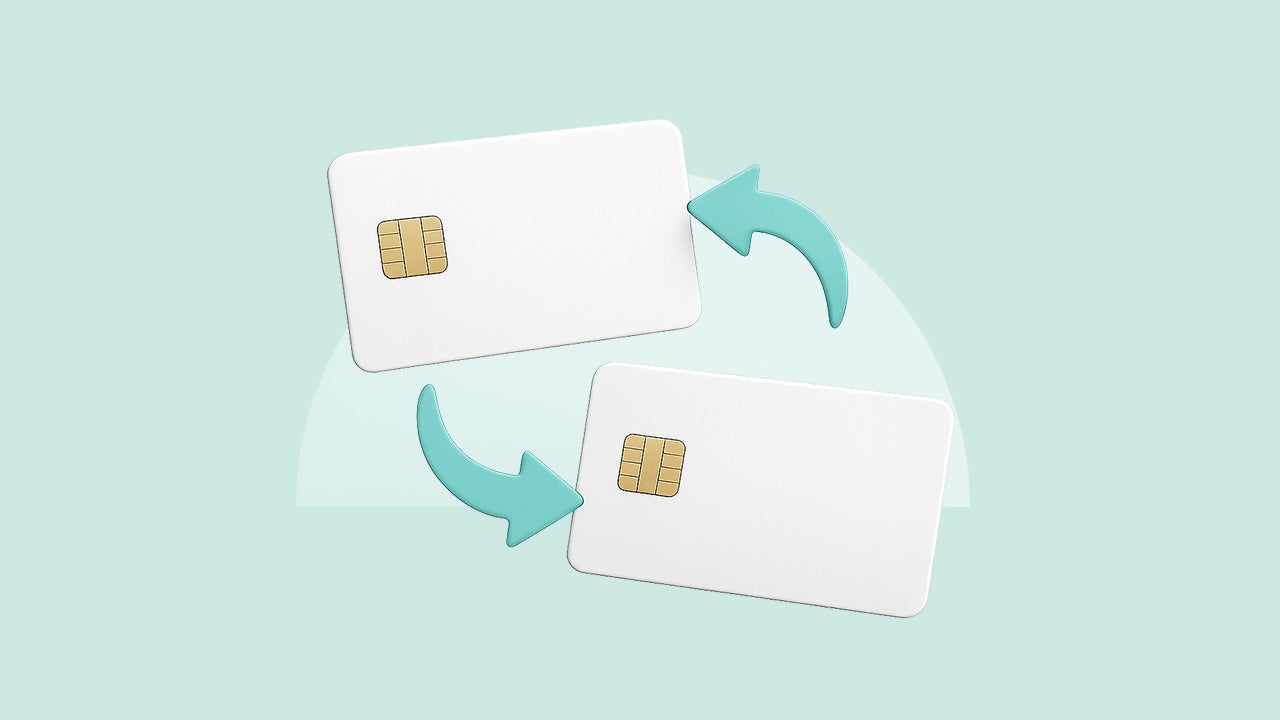Sometimes relationships end. But when it comes to your credit cards, it could be better to update your status instead of making a clean break.
Card cancellations can hurt your credit score, primarily by immediately removing available credit, and may even leave you unable to find a new credit card relationship when you really need one.
But credit card issuers frequently update the terms and benefits of cards — there have been some dramatic and high-profile changes to popular products just this year alone. Sometimes, those changes mean the card just isn’t right for you anymore.
In that situation, it’s usually better to initiate a product change than it is to cancel a card all together.
Have a question about credit cards? E-mail me at [email protected] and I’d be happy to help.
How a product change can help
A product change involves asking the card issuer to switch you to one of their other cards. It guards your credit score because you keep the available credit line, which protects your credit utilization, and maintain your account history — older accounts are viewed more favorably by credit scoring algorithms. It also means you get to change to a card that better fits your lifestyle without a hard credit inquiry.
2025 is ripe for product changes
This topic is especially timely since a lot has changed in the credit card world this year. Just this summer, we’ve seen a host of major developments, including a significant refresh of the popular Chase Sapphire Reserve® card, the launch of the new Citi Strata Elite℠ Card and rumors of upcoming changes to The Platinum Card® from American Express. Also, beginning on Feb. 1, 2026, the Capital One Venture X Rewards Credit Card will restrict airport lounge access to primary cardholders only (no more guest access or lounge privileges for authorized users).
When things change, it’s important to reevaluate your credit card strategy. Many Sapphire Reserve cardholders, for instance, are experiencing sticker shock now that the card charges a $795 annual fee. Some people still get great value — Chase touts more than $2,700 in annual benefits, ranging from travel perks to dining and event ticket credits — but the list isn’t going to suit everyone.
It might even be an “it’s not you, it’s me” kind of breakup. A card like the Sapphire Reserve is best suited for frequent travelers. If you used to travel more, but now you’re more of a homebody (perhaps due to a change in family, work or health circumstances), there’s probably a better card for you. Maybe you’d want to give a more affordable travel card a shot, like the Chase Sapphire Preferred® Card, or change gears completely for a cash back card such as the Chase Freedom Unlimited® or the Chase Freedom Flex®*.
Whether you product change or decide to simply apply for a new card, one of the biggest financial mistakes is failing to shop around for alternatives. This manifests itself in many ways, such as using the same credit card year after year or keeping the same bank account for decades or only obtaining one quote for a car loan, mortgage or insurance product. Your life circumstances change and the market does, too.
In the credit card world, your spending habits are a key consideration when it comes to picking the best credit card. Whether you spend a lot on groceries, gas, restaurant meals, travel or something else, it’s important to pick a card (or cards) with elevated rewards in your top spending category or categories.
It’s also critical to ask yourself whether you’re able to pay in full each month (don’t chase rewards when you’re in debt since credit card rates far exceed rewards payouts). Determine how much complexity you’re willing to take on and whether annual fees make sense for you.
Annual fees can be worth it – for some
Even a card with a high annual fee can be worth it if you take advantage of the perks. You need to do the math, though. Cards that charge annual fees often include sweeteners such as monthly credits for rideshares, food delivery and/or entertainment, along with travel benefits that might include free checked bags, airport lounge access, hotel suite upgrades and more. There’s a lot of value to be had, but only if you use it.
My colleague Ana Staples wrote a great piece about how some of these partnerships essentially tell you how to spend – for example, if you love Starbucks and your card only offers monthly credits at Dunkin’ Donuts, that’s not a great fit.
And beware of overlapping benefits — you probably don’t need to pay for multiple cards with similar lounge benefits, TSA PreCheck/Global Entry fee waivers and so on.
Don’t be afraid to switch cards
A product change is a great solution when a credit card no longer works for you. Another idea is to ask the card issuer to waive (or at least lower) an annual fee. In 2020, 43 percent who asked got all of their fees wiped off and 30 percent got them lowered, according to a Bankrate poll. I tend to hear about annual fee waivers mostly on cards with modest fees in the $100 or so range; plus, it seems these waivers are less common now than they were in the past. Regardless, this is likely more of a short-term solution than something you would do year after year.
If it’s a temporary issue — for example, if you won’t be flying much in a given year but anticipate returning to the skies with regularity beyond that — then asking for a fee waiver on a travel card might make sense. But if it’s more of a longstanding”this card no longer fits my lifestyle” sort of thing, I’d go with the product change. The main downside is that product changers typically don’t qualify for sign-up bonuses or intro APR offers (you have to submit a fresh application for those new cardholder benefits, which may be an option, although it’s not as easy on your credit score).
The bottom line
Take the time to reevaluate your credit cards at least once or twice a year, and especially when your lifestyle changes. A product change can be a great way to make lemonade out of lemons, swapping a card that no longer works for you for a more targeted rewards program, a lower annual fee or a lower interest rate.
The information about the Chase Freedom Flex® has been collected independently by Bankrate.com. The card details have not been reviewed or approved by the card issuer.
Why we ask for feedback
Your feedback helps us improve our content and services. It takes less than a minute to
complete.
Your responses are anonymous and will only be used for improving our website.
Help us improve our content
Read the full article here















